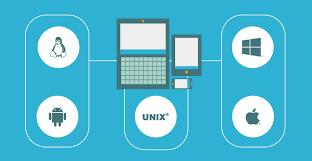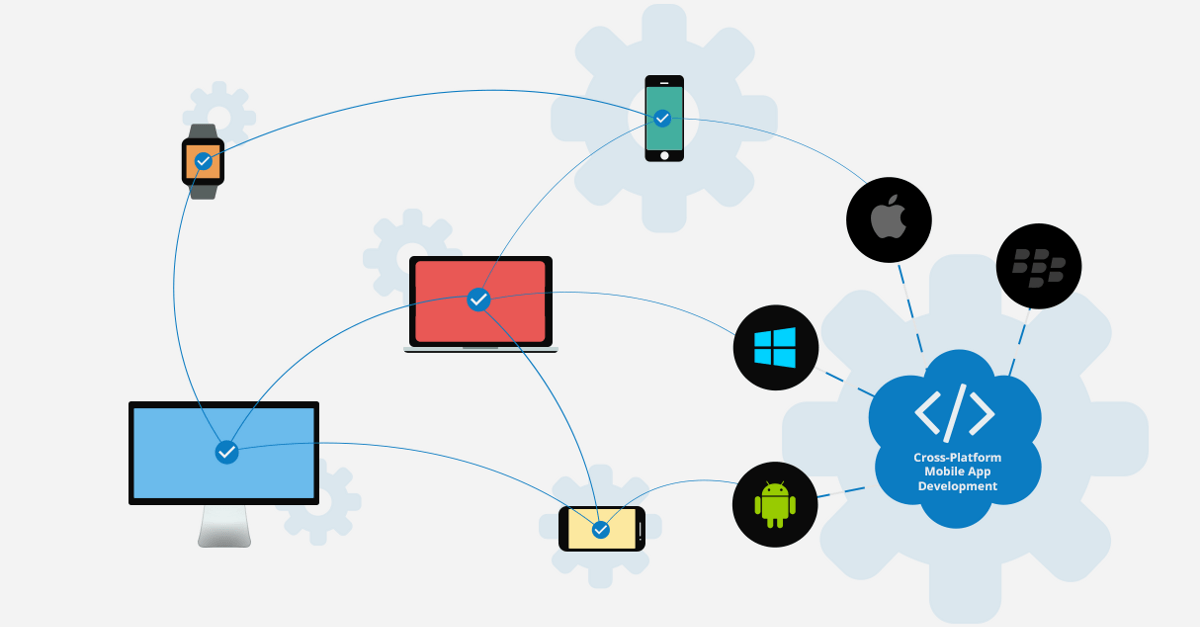Table of Contents
Cross-platform programming languages and frameworks
Cross-platform programming languages and frameworks are tools that enable developers to write code once and deploy it across multiple platforms, such as desktop, web, and mobile. These languages and frameworks provide a unified development environment that allows developers to create software that can run on different operating systems and devices without needing to rewrite the code for each platform.
The benefits of cross-platform programming languages and frameworks are numerous. They can reduce development time and costs, increase a developer’s user base, improve performance, and simplify maintenance by providing a single codebase. Additionally, cross-platform programming languages and frameworks offer a better development experience by providing access to a larger community of developers, more resources, and tools to support development efforts. Overall, cross-platform programming languages and frameworks offer developers the opportunity to create software that runs across various platforms, increasing accessibility and usability for users while decreasing development time and costs.
Flexibility

Flexibility is one of the key advantages of using cross-platform programming languages and frameworks. With these tools, developers can write code once and deploy it across multiple platforms, which can significantly reduce development time and costs. Instead of writing separate codebases for different platforms, developers can use a single codebase that can be compiled and optimized for each platform.
Cross-platform programming languages and frameworks also support a wide range of platforms, including desktop, web, and mobile. This means that developers can create software that can run on multiple devices and operating systems, without the need to learn new programming languages or frameworks for each platform. This not only saves time and effort, but it also increases the potential reach of the software and can improve user satisfaction by providing a consistent experience across different platforms.
In addition to these benefits, cross-platform programming languages and frameworks also provide a range of tools and features that simplify the development process, such as integrated development environments (IDEs), libraries, and frameworks. These tools can help developers write code more efficiently and effectively, allowing them to focus on building high-quality software that meets the needs of their users. Overall, the flexibility provided by cross-platform programming languages and frameworks can help developers create software that is more accessible, usable, and efficient across multiple platforms.
Increased User Base

Using cross-platform programming languages and frameworks can increase a developer’s user base by providing the ability to reach users on different platforms. This means that developers can create software that can run on a variety of devices and operating systems, such as desktops, smartphones, tablets, and even wearables. This increased accessibility can lead to a larger user base and more potential customers for the software.
In addition to increasing accessibility, using cross-platform programming languages and frameworks can also improve accessibility for users who prefer a specific platform. For example, if a developer creates an app that is only available on iOS, they will miss out on potential users who use Android or other platforms. By creating software that can run on multiple platforms, developers can increase the accessibility of their software and make it available to a wider audience.
Another benefit of targeting multiple platforms is the ability to reach multiple demographics. Different platforms appeal to different users, and by creating software that can run on multiple platforms, developers can target a wider range of users with different preferences and needs. This can lead to increased user satisfaction and engagement, as users will be able to access the software on their preferred platform.
Reduced Maintenance Costs

Reduced maintenance costs are another advantage of using cross-platform programming languages and frameworks. By using a single codebase for multiple platforms, developers can save time and effort in maintaining their software. Instead of maintaining multiple codebases, developers can focus on maintaining a single codebase, which is much easier and more efficient.
In addition to being easier to maintain, using a single codebase also results in fewer bugs and compatibility issues. Since developers are writing code that will be used across multiple platforms, they are more likely to catch bugs and compatibility issues during development, which can save time and effort in the long run. Additionally, using a single codebase means that any updates or new features can be implemented across all platforms simultaneously, reducing the risk of compatibility issues arising from multiple codebases.
Another benefit of reduced maintenance costs is the ability to allocate resources more efficiently. By using a single codebase, developers can spend more time and resources on improving the software rather than maintaining multiple codebases. This can lead to improved software quality, increased user satisfaction, and ultimately, more revenue for the developer.
The reduced maintenance costs provided by cross-platform programming languages and frameworks can save time, effort, and resources for developers. By maintaining a single codebase, developers can reduce bugs and compatibility issues, improve the quality of their software, and allocate resources more efficiently.
Better Performance

Better performance is another advantage of using cross-platform programming languages and frameworks. By using these tools, developers can optimize their code for specific platforms, resulting in improved speed and efficiency of the software. This is because cross-platform programming languages and frameworks provide developers with access to platform-specific libraries and APIs, which can be used to optimize the code for each platform.
In addition to optimizing the code, using cross-platform programming languages and frameworks can also improve the overall user experience. This is because improved speed and efficiency can lead to increased user satisfaction and engagement. Users are more likely to continue using software that performs well and is efficient, and this can lead to increased revenue for the developer.
Moreover, better performance can also lead to improved search engine rankings and visibility. This is because faster and more efficient software is more likely to be favored by search engines, leading to better search engine rankings and visibility for the software. This, in turn, can lead to increased traffic and revenue for the developer.
Overall, the ability to optimize code for specific platforms and improve the speed and efficiency of software is a significant advantage of using cross-platform programming languages and frameworks. Improved performance can lead to increased user satisfaction, engagement, revenue, and even search engine rankings, making it a critical factor in the success of any software development project.
Better Development Experience

Better development experience is another advantage of using cross-platform programming languages and frameworks. These tools provide developers with access to a larger community of developers, which can be a valuable resource for learning and improving their skills. Additionally, using cross-platform programming languages and frameworks provides access to more resources and tools that can help developers work more efficiently and effectively.
By using cross-platform programming languages and frameworks, developers can also improve collaboration and communication among team members. This is because these tools are often designed with collaboration in mind, providing features such as version control and collaborative editing. This allows developers to work together more seamlessly, leading to improved productivity and efficiency.
Moreover, cross-platform programming languages and frameworks are often open-source, which means that they are developed and maintained by a community of developers. This community provides valuable feedback and support, and can often help resolve issues more quickly and efficiently than a closed-source platform.
Better development experience provided by cross-platform programming languages and frameworks can lead to improved collaboration and communication among team members, access to a larger community of developers, and more resources and tools available. This can result in improved productivity and efficiency, better software quality, and ultimately, more revenue for the developer.
Conclusion

In summary, cross-platform programming languages and frameworks provide several advantages to developers. These include flexibility, increased user base, reduced maintenance costs, better performance, and a better development experience. By using these tools, developers can write code once and deploy it across multiple platforms, target a larger user base, reduce maintenance costs, optimize code for specific platforms, and access a larger community of developers and resources.
In conclusion, cross-platform programming languages and frameworks are a valuable asset for developers in today’s technology landscape. With the increasing demand for software across multiple platforms, these tools provide developers with the flexibility and efficiency needed to succeed. Whether you are developing for desktop, web, or mobile platforms, using cross-platform programming languages and frameworks can help you save time, reduce costs, and improve the overall quality of your software.
At 3S coding, we opt for cross-platform programming languages and frameworks whenever possible, and our preferred language is C# with dot net core. This choice allows us to take advantage of the flexibility and benefits of cross-platform development. In particular, it enables us to create a code base that is ready and tested, which is essential if our clients decide to expand to additional platforms in the future.
If you’re ready to take the next step don’t hesitate to contact 3S coding. We’ll be happy to help you bring your idea to life and create an app that exceeds your expectations.

